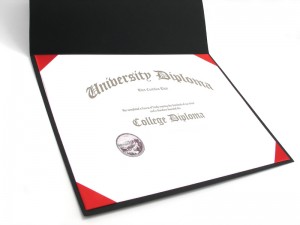 The paralegal profession has grown dramatically in importance to law firms since the early 1960s. In 2010 the Bureau of Labor Statistics reported that there were 256,000 paralegal jobs in the economy and projected that there would be another 46,900 positions by 2020.
The paralegal profession has grown dramatically in importance to law firms since the early 1960s. In 2010 the Bureau of Labor Statistics reported that there were 256,000 paralegal jobs in the economy and projected that there would be another 46,900 positions by 2020.
The path to a paralegal career requires a college education and, in many states, official certification. Many paralegal programs include a required internship prior to graduation. Other schools offer voluntary internship opportunities that earn credits towards graduation. Either way, paralegal internships are recognized as one of the most effective avenues for ultimately finding a paralegal job. As one writer on the profession noted, internships may be the “golden ticket” to launching a paralegal career.
Finding the right internship can be a challenge. The practice of law covers a wide range of focuses and the first question a student or new paralegal needs to consider is the type of law that interests them. Once a type of practice is identified, there are several steps that internship seekers should follow in their search.
Identify Connections
Networking is the most effective ways to find out about potential internships because law firms rarely advertise for these positions. Brainstorm with school advisers and people in the legal profession. Many colleges actively seek out internships or are contacted by organizations looking for interns. Understand that most internships are unpaid.
Talking to local working paralegals is another way to network. These people often know about upcoming vacancies and opportunities. Local organizations are also a good source for finding out how law firms function and the various roles within a firm.
Look for Internships in Unexpected Places
While the majority of paralegal positions and internships are found with law firms, there are other organizations with legal departments that require paralegal support. Many local, state and federal offices have legal staffs and need paralegals. Insurance firms, medical organizations, real estate firms and non-profit legal services organizations are also great places to research.
Applying for a Paralegal Internship
An internship, paid or unpaid, is a job and requires a formal application even if the internship is offered through a college program. Application packages should include a cover letter and resume prepared specifically for each internship sought. It is also important to ask college instructors for letters of reference and attach the letters to the application package.
Working as a Paralegal Intern
With an internship in hand, it is always appropriate to write a formal thank you letter to the person(s) who awarded the internship.
Successfully landing a paralegal internship is the beginning of another learning process. What students learn in college is a foundation. The actual work performed at a law firm or in a legal department is distinctly different from what is taught in school.
Once in the work environment, it is important to dress, behave and perform duties professionally – it is also an expectation. This is the new paralegal’s chance to learn the ins and outs of legal work. It is a time for asking questions, showing initiative and honing skills.
After the Internship Ends
At the conclusion of an internship, it is helpful for the intern to discuss his or her strengths and weaknesses with their superior. It is also a good time to ask for a letter of recommendation.
The interning firm may or may not offer an intern a job. Even so, write a formal letter of appreciation for the internship opportunity because it is the proper thing to do and because a position might become available later. The most important result of a successful internship is the experience that can be added to a resume.
_______________________
Author Bio
Joshua Turner is a writer who creates informative articles in relation to business. In this article, he describes a few benefits of interning as a paralegal and aim to encourage further study through Online Degrees at George Washington University.









